HAZEL Baron was just nine when she first suspected her mum was a killer. Here she describes the day her dad disappeared.
‘Woman on three murder charges!’ the paperboy shouted as the cars pulled up at the traffic lights on Sydney’s busy Crown Street.
Hazel Baron didn’t need to see the headlines on Monday afternoon’s Daily Mirror to know who they were written about. She didn’t need to see the photograph of the alleged killer on the front page to know who she was. It was her mother.
In true tabloid fashion, the front page was almost entirely taken up by the photograph.
A woman on one murder charge would always guarantee such a spread, never mind a woman accused of being a triple killer.
The tall gangly schoolgirl was already the keeper of too many of her mother’s secrets
Dressed in a conservative overcoat, gloves and hat, despite the heat of the December day, Hazel Dulcie Bodsworth, 52, had been snapped as she was led by detectives from Sydney Airport.
She looked every inch the respectable middle-aged woman, not a hair out of place, not a stray emotion.
But Dulcie, as she was known, and her scandalously young husband Henry William Bodsworth, 19 years her junior, had been extradited from Melbourne to face Sydney’s Central Local Court. Dulcie was charged with murdering three men, Henry with murdering one of them ‘with his wife’.
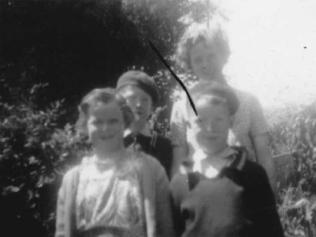
Hazel Baron was terrified, exhilarated and nauseated, all at once.
‘Read all about it!’ the paperboy shouted through the passenger window. ‘No thanks,’ Hazel said, shaking her head in a quick way that was little more than a shiver.
Her husband, Bill, looked over at her from the driver’s seat and asked her: ‘Are you all right? Did you see Dulcie?
‘Hazel.’ Bill’s voice dragged her back to reality on that day, 8 December 1964. ‘Did you see Dulcie?’
Hazel turned and, very calmly, said: ‘Yes.’
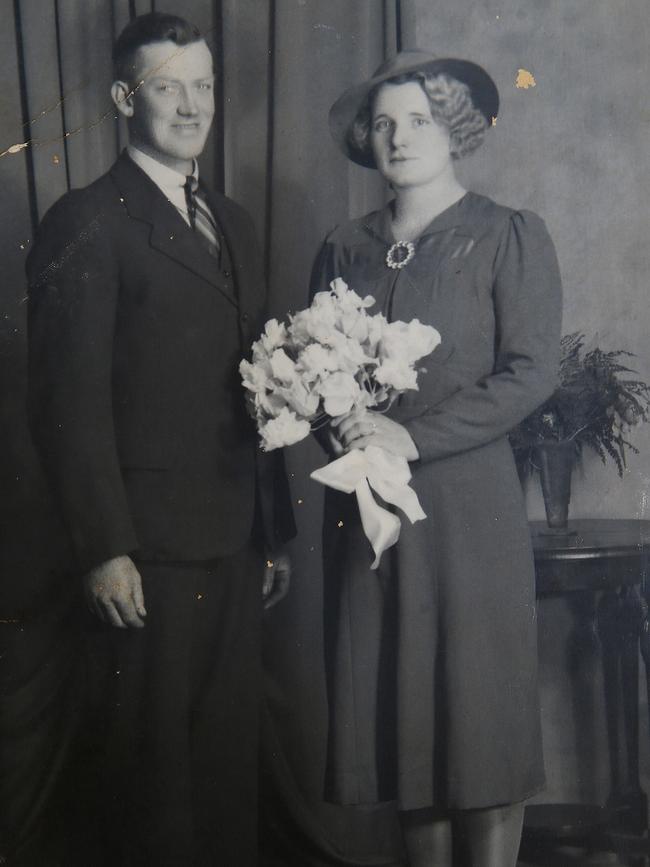
The truth wasn’t always nice but it was always the truth. The truth was that it was Hazel who had dobbed her mother in. The truth was that she knew her mother would have kept on killing if she had not been caught.
But the courage it had taken Hazel to step forward was ebbing away as the reality hit, splashed across the front page of a newspaper.
It was Hazel who would have to stand up in court and give evidence against her mother and her stepfather if they pleaded not guilty.
Even worse was how terrified she felt at how Dulcie would react when she found out Hazel was behind it. Or if Dulcie was acquitted and freed.
Hazel Baron was nine when she first suspected her mother was a murderer.
The tall gangly schoolgirl with short curly hair who wore long socks, wool skirts which came to below her knees and heavy knitted sweaters was already the keeper of too many of her mother’s secrets.
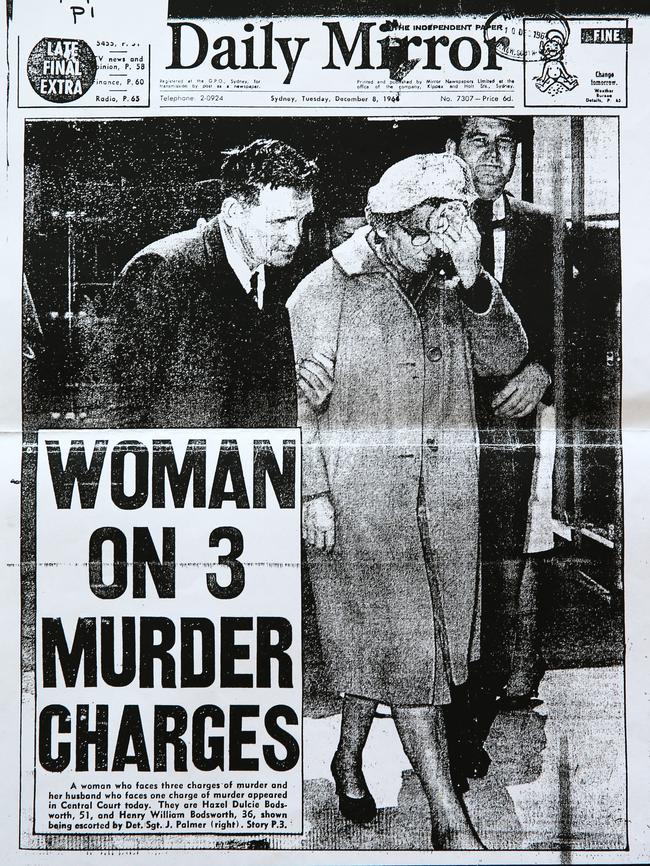
Don’t tell your dad about this. Don’t tell your dad about that. Don’t tell him about the sneaky hours in the dark on the big back seat of the family’s American-built Nash car with young Harry.
Harry was only supposed to be ‘helping with the kids’. As a kid herself, Hazel did what she was told and never even considered telling on her mum. Dulcie was also quick with her right hand to dish out a slap or worse.
Looking back, Hazel’s suspicions should have been aroused on the night when her mother, Dulcie, then known as Hazel Dulcie Baron, gave the kids warm milk and Aspro tablets before bed.
It was the first time in their lives that Hazel, her brother Allan, eight, and the five-year-old twins, Margaret and Jim, had been given warm milk to drink.
Dulcie wasn’t much of a mollycoddling mother, treating her four children more like mini grown-ups. But this had been a big day, she said, and the milk and Aspros would help them sleep. Her attention made them all feel special for a change.
The family had pitched their tents on the flat lands of Buronga, on the NSW side of the river, facing the Victorian town of Mildura.
Their closest neighbours were other nomadic families living in similar post- World War II straitened circumstances in tents further along the riverbank.
Dulcie was pleasant to them; she cared what other people thought about her and she liked to be liked.
She always had a smile and a hello when they passed each other, but that was as far as it went.
She preferred to keep herself to herself and told the kids to do the same. Mind what you say. Careful what you tell people. Wherever they went, Dulcie built fences around them with smiles and reassurances.
Hazel already suspected that their family might not be quite normal but she really had nothing to compare it with. Everyone had their secrets, didn’t they?
The reason for the warm milk and Aspros was snoring on a stretcher bed near the tent flap. Wednesday, 30 August 1950, had been a big day because their dad, Ted Baron, 48, had come home from hospital.

The once-powerful railway ganger, who had led teams of tough men doing hard graft across NSW and Victoria, was just a shadow of himself.
He had arrived at camp that afternoon in a taxi from Mildura Base Hospital, over the Murray River Bridge and down to Buronga.
Dulcie had been dutifully visiting him every day for the two weeks her husband was in Mildura Hospital and when he told her that he wanted to go home with her, she seemed suitably thrilled.
Ted was still tall at six feet two inches and wore his only suit, a dark brown one, with the pants held up with braces. He would
never wear a belt, believing the only ‘proper’ pants were ones with braces. But despite the braces, the jacket and pants that had once fitted his big frame were now hanging loose.
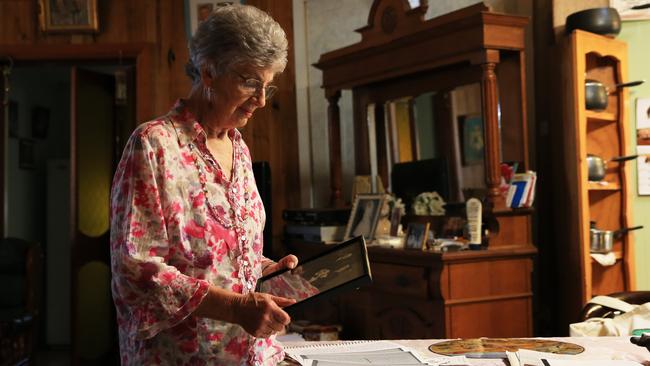
Ted slouched on the bed soon after arriving back at camp while Dulcie fussed and fluffed about.
Dulcie suggested he turn in for the night before the kids did. She told him to stay in what was usually her bed, a camp bed on legs in the kids’ tent, and she would take one of the thin shearer’s mattresses on the floor.
Ted got no rest without sleeping tablets, even though they made him snore.
As he lay in bed, Dulcie brought him one of their best china teacups full of water so he could wash them down. She pulled the wagga (blanket) up around his neck and tucked him in at 6pm.
He was sound asleep when the kids got into their beds. Hazel bent down and gave his lined cheek a kiss but he didn’t move. As for the kids, the warm milk and Aspros had the desired effect and they slept like logs.
Hazel’s mum shook her awake the next morning. The flap to the tent was ajar, the shaft of light showing that her dad’s bed was empty.
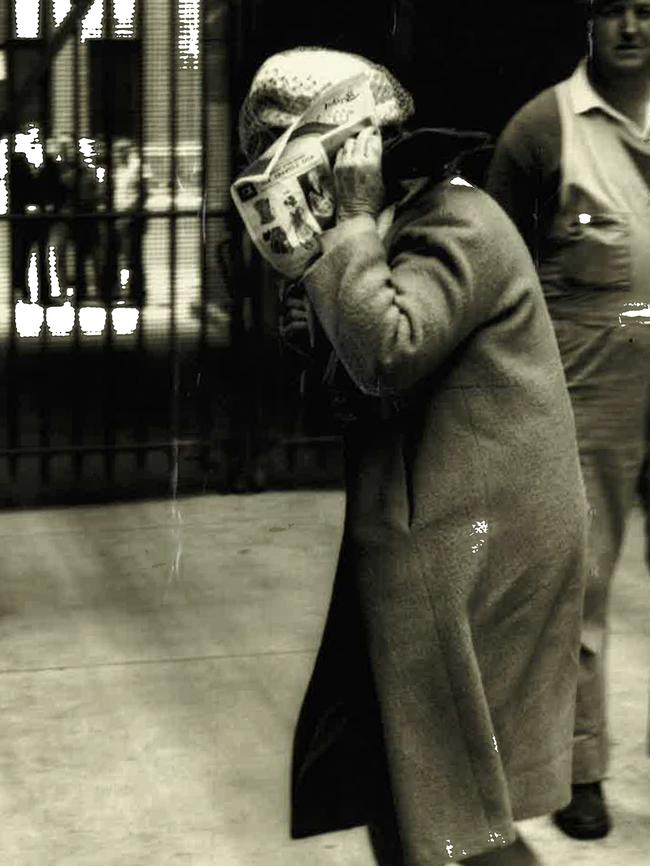
Dulcie was bending over her, her face all teary: ‘Hazel, Hazel. Your father’s gone. He wasn’t here when I woke up. I think he fell in the river and drowned last night.’
In her hand, she held the china teacup.
‘I think he went down to the water to get a drink and fell in. I don’t know what else could have happened. We’ve got to look for him. Come on, get up and help.’
On the banks of the river, Ted’s faithful dog, Toby, howled into the morning air.
It was barely 8am when the first police officers arrived. They found the four children peeping through the flap of the big tent, their faces fearful at what had happened, their mother in tears, their father missing and his dog, sitting unmoving on the sandy riverbank, staring out at the water and still howling.
A young man introduced as Harry was wafting a flame until it caught on under a pile of hefty logs in the fireplace.
Dulcie wrapped her arms across her chest as she spoke to the officers, tucking her hands under her arms.
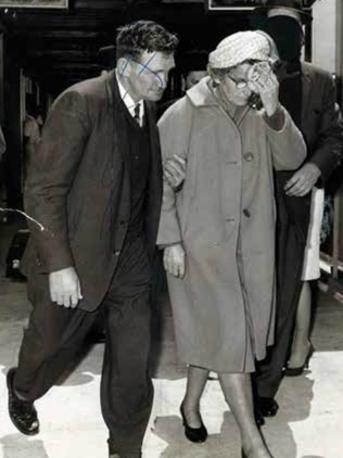
You couldn’t call her pretty but she was an attractive woman, who wore her confidence in her face.
She was always ladylike and demure; and, despite having little money to spend on clothes, she did her best to look classy.
You would never get a flash of her petticoat because her dresses were always below the knee.
Dulcie was five feet six inches with ginger hair that she kept short, as was the fashion. She wore thick glasses but she couldn’t read very well.
However, she could talk — boy, could she talk.
Her words came pouring out. Her husband had got home from hospital just yesterday afternoon, Dulcie told the police.
He’d been fine when he went to bed in his pyjamas and she had heard him moving around about 1.30am.
She had slipped back to sleep and, when she woke at 6am, she saw he wasn’t in the tent. He’d gone.
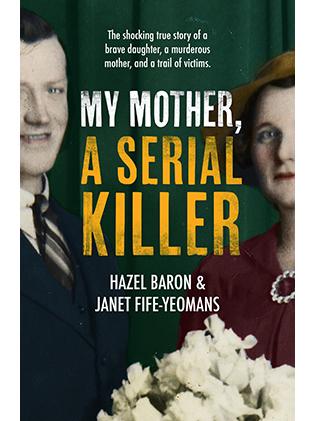
Hazel had stopped loving her mum after her dad’s body was retrieved.
She didn’t actually tell her mum that in so many words but she became much quieter than she had been.
On the other hand, Dulcie seemed to need her oldest daughter even more.
Harry replaced ‘your dad’ as the person Hazel was to keep secrets from.
Before they left Buronga, Dulcie casually dropped one more secret into a conversation with Hazel. She had been married before Ted, she said, but she had never told him.
Dulcie and her first husband had had four children but she had no idea where her husband or the children were.
The bombshell was followed by the customary warning, slightly altered: ‘Don’t tell Harry.’
Hazel knew she would never call Dulcie her mother again.
My Mother, a Serial Killer by Hazel Baron & Janet Fife-Yeomans is published by HarperCollins.

Thorpey’s back in the water for Sydney-Hobart adventure
A quarter-century after his Sydney Olympics triumph, Ian Thorpe faces his most unexpected challenge yet aboard a championship sailing vessel.
Halftime rappers, nightclubs: How Aussie footy lags behind US
Australian sports codes are missing millions in revenue by failing to match the spectacular fan experience that makes NFL games feel like major events, writes Tyson Jackson